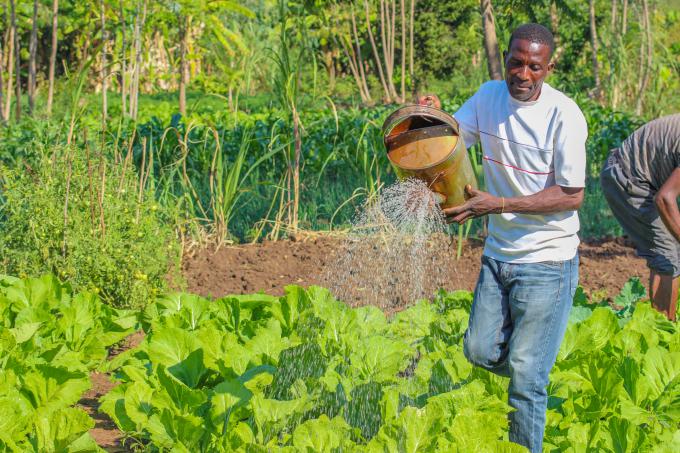Empowering farmers as COVID-19 strains families

Having produced the best crop in his 15-year career as a tobacco farmer in Ntcheu district in Malawi, Boniface Namate did not think, for a moment, that the novel Covid-19 pandemic would affect him in any way as what remained was the last mile of his tobacco production process.
“This year, my yield was so good, actually it was my best crop ever since I started tobacco farming,” Namate says.
But things have not turned out as expected for the resident of Chikomba Village in Ntcheu district.
When the auction season opened, the tobacco buyers were told that they would not be allowed to travel to the auction floors to physically sell their tobacco owing to restrictions imposed due to the pandemic.
But once the money started coming from the initial bales that he had sent, Namate instantly knew that he was in trouble.
Namate says the prices that came from the auction were ridiculous and left most of the farmers distraught.
“In my case, I had sent out 10 bales of tobacco weighing 1,116 kilogrammes with an expected market value of K1.1 million (about $1,500). But the money that I was paid was a meagre K400,000 (about $548)”.
“I was devastated because I had planned a lot of things with the money — I have two daughters aged 16 and 17 completing secondary school education this year and I wanted to send them to better universities with the proceeds. My children have become even more devastated, as they see learning opportunities pass them”, he says.
Namate says, under the circumstances, the prospects of fetching fair prices from the auction have all but vanished and he is stuck with several more bales of tobacco that he still has to sell.
From this year’s harvest, Namate had hoped to make K4.5 million (about $6,000) from his 3,000 kilogrammes of crop but he says he will be lucky to make even K1 million.
“When we are present at the auction floors as farmers, we bargain for better prices and we get the best we can. Amid COVID-19, we have been denied that chance,” he says.
But Namate’s despair turned to delight after he was invited to take part in an agro-business training in the district as a member of Nsipe Farmers’ Cooperative, organized by Save the Children.
Enifa Banda, a government agricultural extension officer for Nsipe in the district trained the farmers resilience methods amidst the Covid-19 pandemic.
A group of 15 representatives from five cooperatives with a total of 700 members underwent the training.
As part of the trainings, the farmers were exposed to other opportunities that have opened up the market due to the pandemic.
According to Enifa, “Due to the fact that the borders are closed, there is a gap on the market in terms of the supply of vegetables in the supermarkets and hotels, as they were being imported.
“This provides the local farmers with a window of opportunity to supply tomatoes, onions, vegetables and other associated produce to the supermarkets and hotels. So, this training basically took them through how they can benefit from this vacuum by working in cooperatives to produce the best yields,” she said.
Namate adds: “It is possible that we can make much more profits from these cash crops than we did with tobacco. This could revive my children’s shattered dreams.”
Save the Children, in partnership with the IrishAid, is currently implementing an 18-month project in Ntcheu to support households with resilience-building activities so that those with productive capacity can graduate into other forms of support in future and those without are better protected against future shocks.
 Malawi
Malawi